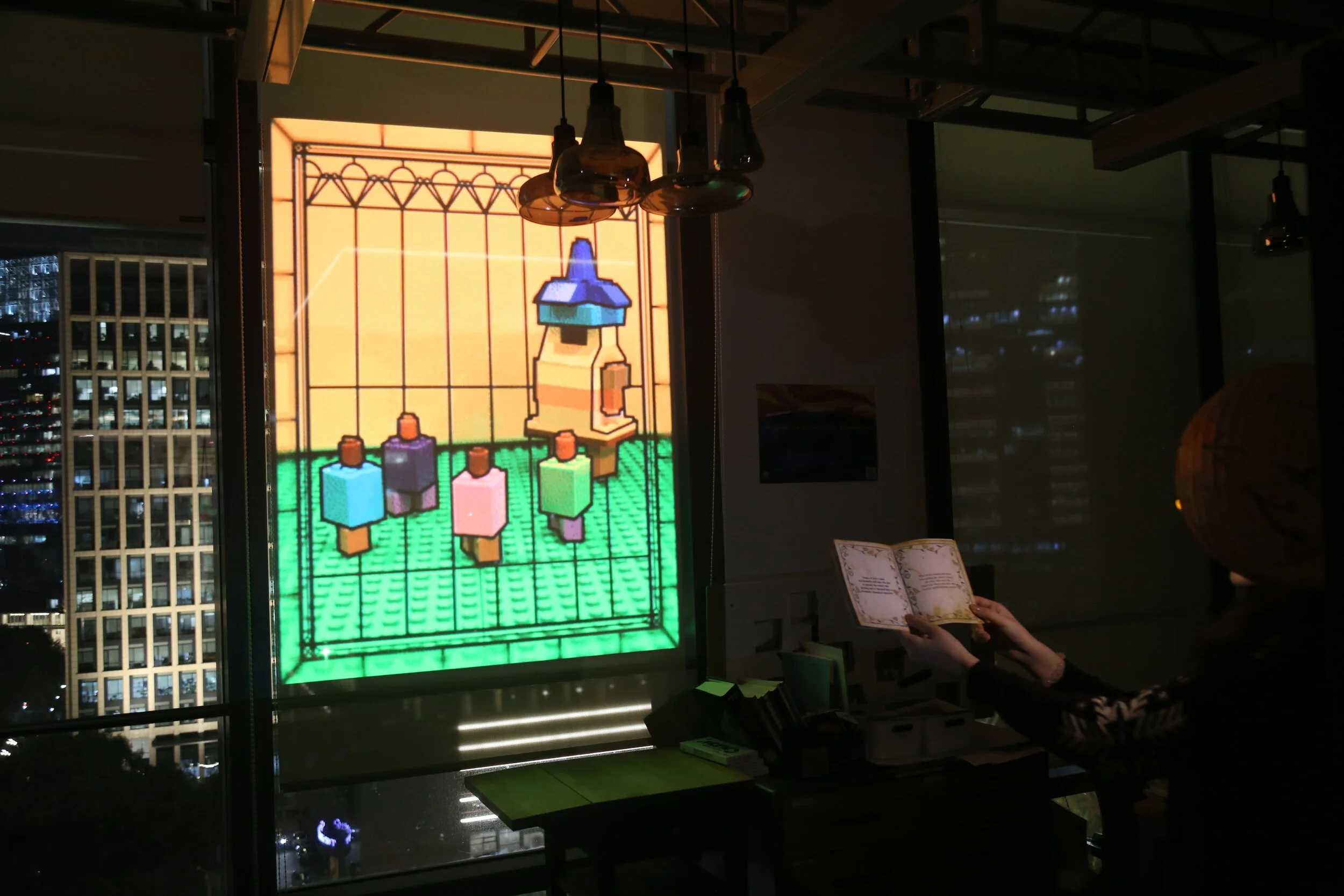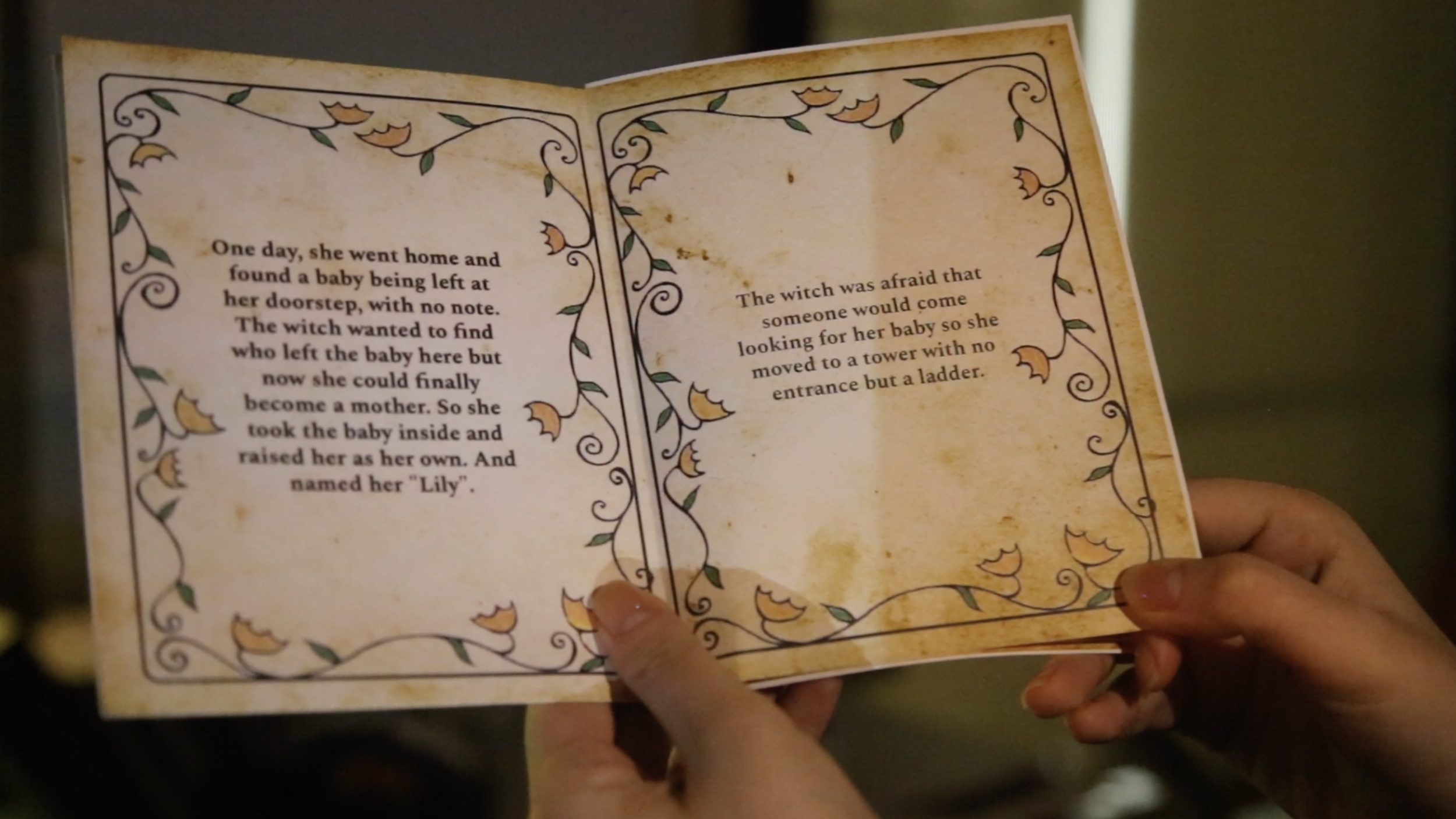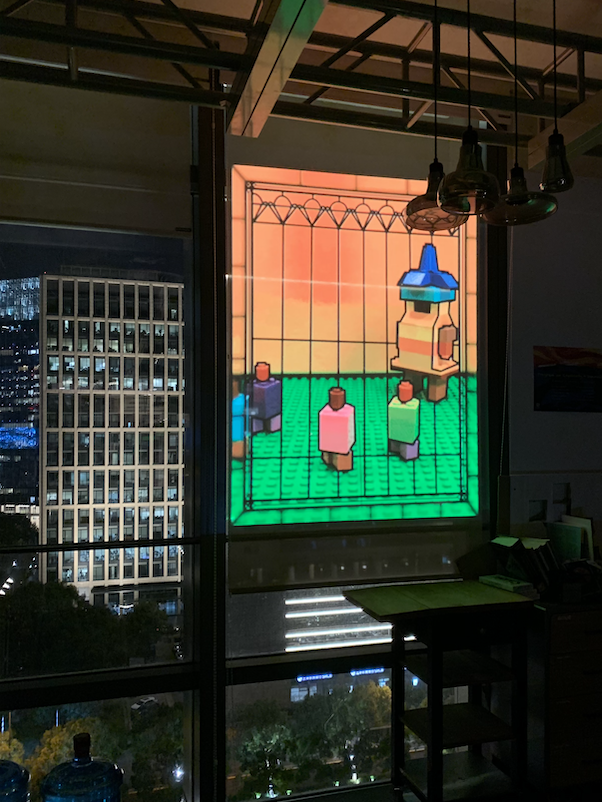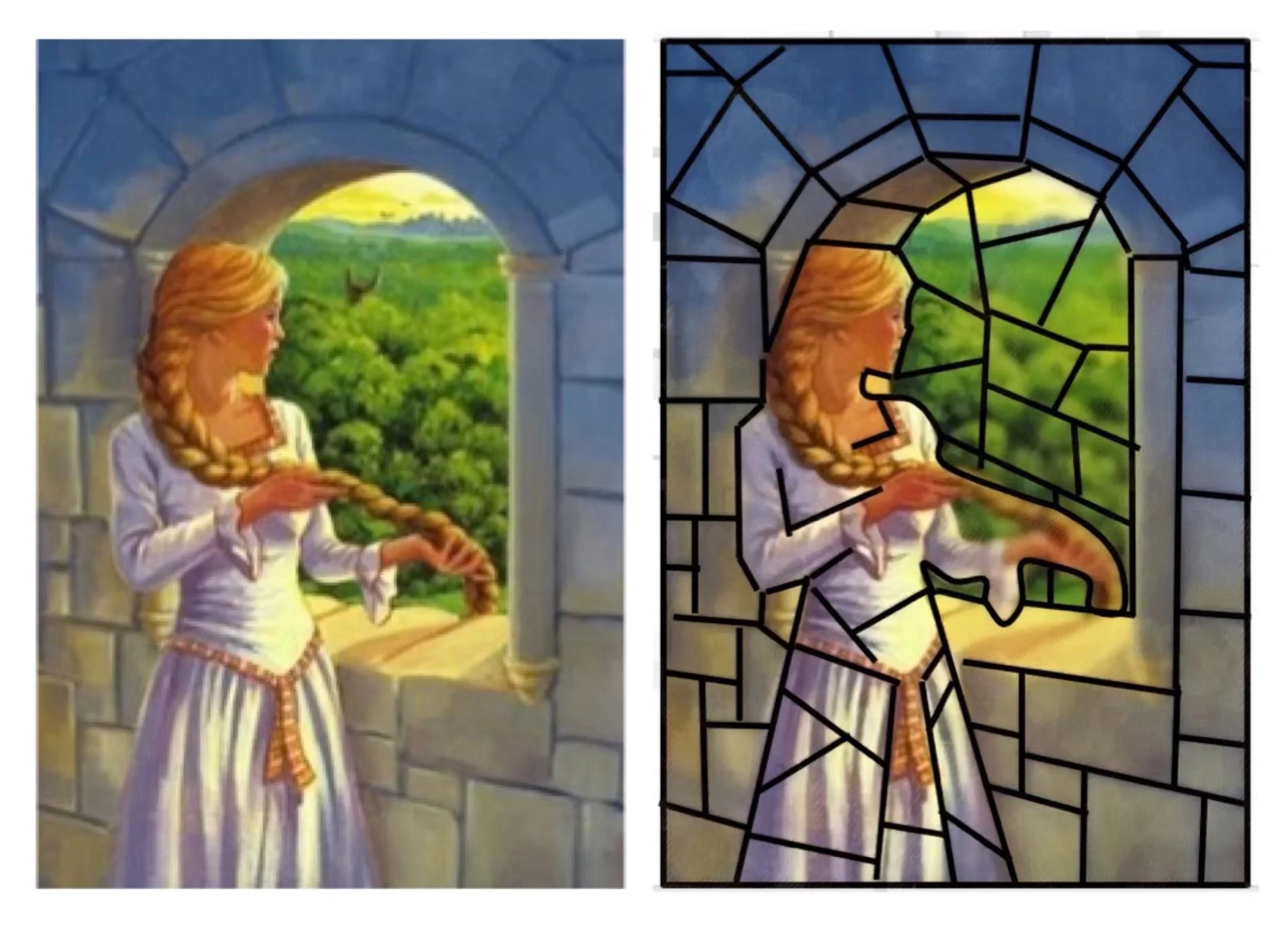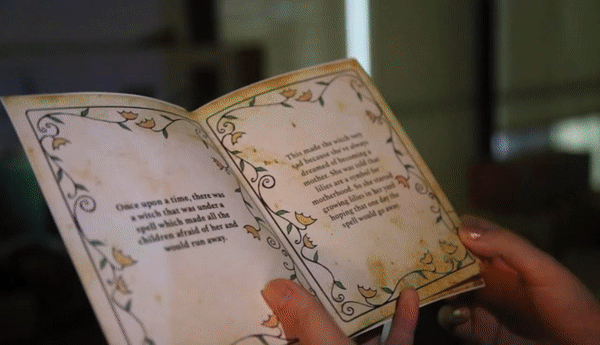
Tangled Glass
Digital Storytelling | Projection-Mapping | Stop-Motion Videography
Individual Work
Timeline: November 2020 - December 2020 (3 weeks)
Made with: Hardware - Leap Motion, Arduino; Software - Adobe Photoshop; Materials - Lego Blocks, Cardstock.
| Opportunity
We were asked to develop a fairytale retelling in the form of our choosing.
| Outcome
Through analyzing the historic role and original structure of the fairytale Rapunzel, this project retells the story by implementing fresh ideas under contemporary frameworks.
Tangled Glass is created based on an original retelling of the Grimm’s Fairy Tales’ Rapunzel. This retelling focuses on refuting the idea widely seen in fairytales that if people are good, they are good, and if bad, they're bad. It's a redesign of the tale that centers around the witch's love for Rapunzel and how Rapunzel was allowed to make her own decisions.
Taking the narrative from the retelling, Tangled Glass is displayed in the form of combining strongly contrasted color blocks from LEGO with the intense visual effect from stained glass windows (achieved with Adobe Photoshop). The story is broken into 16 originally designed frames and each frame itself contains a stop-motion animation. The transition between frames is triggered through Leap Motion detection by flipping a physical hand-made booklet with a short narration of each frame.
The final project was projected on the windows at the NYU Shanghai campus.
01. Story Development - Main Characters Redefinition
As was mentioned in an interview with Philip Pullman, who wrote the book “Fairy Tales From The Brothers Grimm”, in Grimm’s Fairy Tales, there’s a simple separation between good people and bad people. As we grow older, we would find out they are much more complex in defining a people being good or bad, as a lot of intentions become unsure. So as I redefined the main characters of this story, I focused on giving more depth to their personalities, especially the villain, the witch.
Original
Rapunzel:
Never experienced any danger yet never had any adventure either
Saved by the prince
Rapunzel's Hair:
Helped achieve the witch's desire
Lead the prince to Rapunzel
Witch:
Petty & vindictive
Lonely - really wanted companion
Always wants something in return
Very protective and attached to her stuff (her daughter/the rapunzels)
Retelling
Rapunzel:
Takes courage in getting to make her own decisions
Eventually saves herself
Rapunzel's Hair:
A tool to save Rapunzel herself
An identification is added on Rapunzel, but she would, later on, realize it’s not what's important
Witch:
Not a 100% bad person
Loved and cared for Rapunzel
Greedy → Understanding
02. Storyboard
03. Ideation
It’s not hard to notice that religious poetry is one of the core inspirations of Grimm’s Fairy Tales.
Stained Glass on the other hand has been used to convey important religious ideas and stories. They are narratives made with pictures instead of words, a graphic novel without dialogue.
Hence for this retelling, I’ve decided to tell the story through the form of digital stained glass projection.
04. Frame Rendering
A stained glass window is assembled by various high-color-contrast blocks. Having the bad experience of adding the effect onto drawings, I took adventage of organized colorful Lego Blocks to build up my story. Each scene of the storyboard is visualized into a 3-4 frame Lego-built stop-motion film. I then used Adobe Photoshop and Procreate to render the frames by adding stokes to outline blocks and blur effects to the border.
05. Booklet Design
06. Installation System Diagram
07. Recognition
back to Interactive Media
